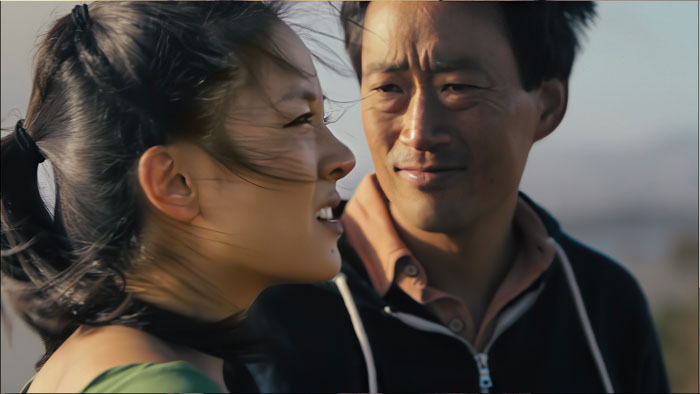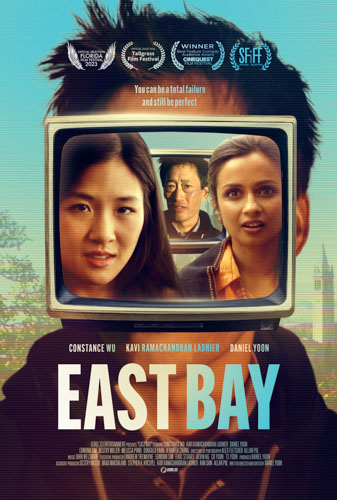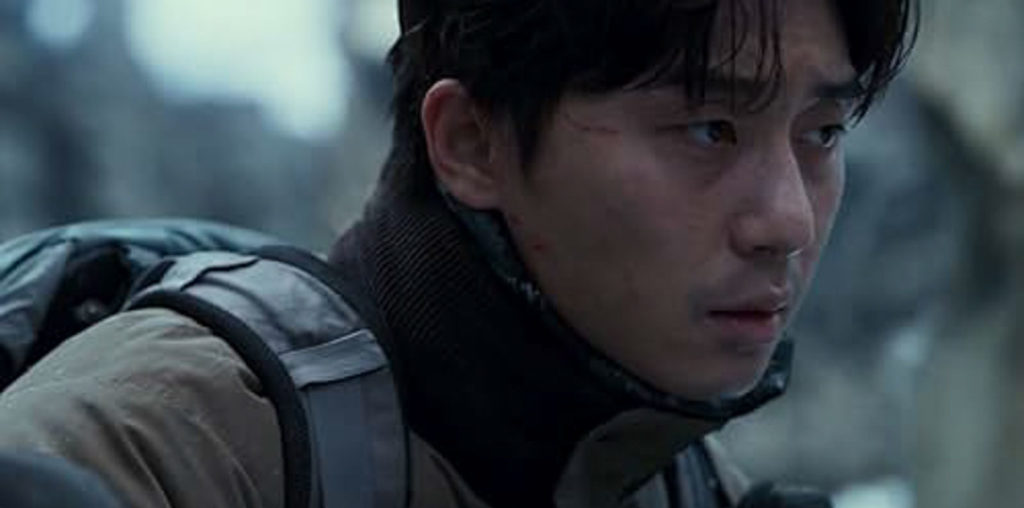
Daniel Yoon’s life set the stage for East Bay, for which he serves as co-writer, director, and star. Yoon plays a frustrated man named Jack Lee. He’s a second-generation Korean who has failed to hit any expected marks. At 39, he has no profession, wife, children, or home and not much of a life. He has achieved none of the things his ancestors dreamed of and sacrificed for their family to have in the States. Lee spends his time working IT scut jobs, making short films, and playing hockey with his co-workers, who’re aging slackers, though they seem fine with their lives.
Lee fantasizes about scenarios that make him, if only momentarily, relevant. He imagines his funeral or sees himself saving people from a burning building with frantic bystanders screaming, “That white woman needs help!” It eases the pain of life when he imagines the world as a vast computer simulation. Reacting to events that point to him becoming a middle-aged failure, Lee only whispers “f**k” under his breath. The gut punch that cements his fate forever is when he is told, on his birthday, that his girlfriend, Beth (Melissa Pond), is pregnant by another man. “Why not just break up with me the normal way, by Facebook?” he responds.
From here, East Bay follows Lee as he searches for any path out of the darkness. He reaches out to a guru named Vivanti (the stunning Kavi Ramachandran Ladnier). She speaks to him of finding the essence of the divine inside himself. He only sees her physical beauty, asking her out when she shines her light of empathy. He learns that she’s not the calm, spiritually centered person she presents. He also periodically has visions of a God he claims not to believe in. The deity is a silver-haired elderly white man who always seems confused. Another episode where Lee snatches defeat from the jaws of victory is his interaction with festival film programmer Sara (Constance Wu). When she shows legitimate interest in him, he rages at her in a racist rant and tells her that neither of them belongs in America. There is chemistry between them, but Lee’s self-loathing sabotages the interaction.

“At 39, he has no profession, wife, children, or home…”
Lee suffers a kind of ennui that seems to be endemic to California. From the outside, his life looks like a good one. He’s healthy and doing what he wants to, which would be a comfortable life if viewed and embraced healthily. Instead of following the philosophy of love your fate, Lee lives in aggressive lethargy, so any reflection is “Why did this happen to me?” instead of “Why didn’t I act on my own behalf?” He is a Korean-American version of J. Alfred Prufrock. His films are complaints and confessions. Scenes of Lee playing hockey struck a chord and brought a realization that his journey is not dissimilar to that of Dante in Clerks. He was not even supposed to be here today.
This is not the story of a bright, motivated person who failed. Lee is a dull, lazy person who is on track to live out his days bumping along the bottom of the river of life. His angst comes from his, and others, expectations of him to be different. East Bay is a lively film about a tedious person. The viewer feels sympathy for Lee while wanting something drastic to happen to snap him out of his narcissistic fog. Yoon sprinkles in moments of wry humor that fit the scenario well.
Spending time with Lee is frustrating but also thought-provoking. While some elements of Yoon’s life may be reflected in East Bay, as a filmmaker, he’s clearly not the protagonist here, as he shows great skill. The pacing, cinematography, music, and editing make the most of the small budget. Within that entertaining framework, he has crafted a meditation on the standards we hold ourselves to and questions the essential nature of conscious life.

"…shows great skill."


